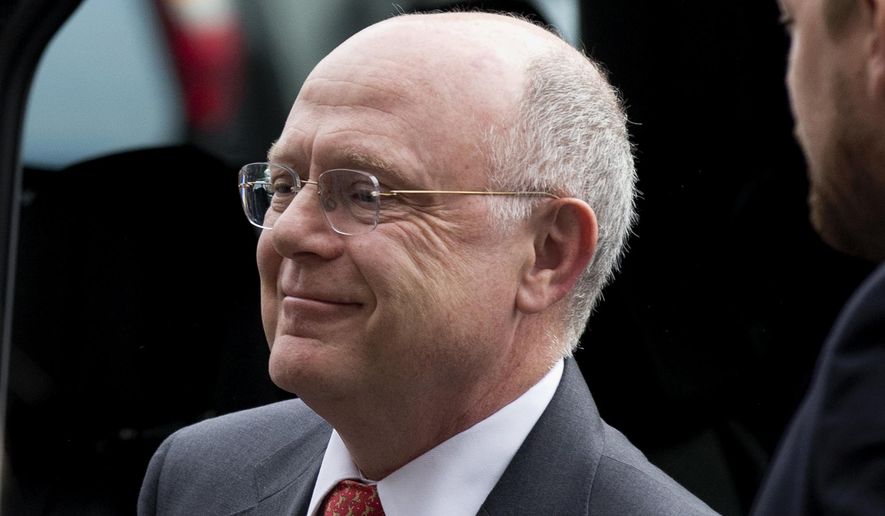President Trump was riding high in July after a series of strident tweets and personal phone calls paid off: Pfizer, a top drug manufacturer, had decided to defer price increases for the rest of the year.
He called it “great news” for American consumers, and other companies followed suit. They froze their prices while the White House worked on a prescription-pricing blueprint.
But with New Year’s Day looming, the freeze is thawing.
Pfizer is one of nearly 30 companies planning to raise costs in January, according to Reuters. The drug giant said prices of 41 of its products will increase generally in the 5 percent range.
Novartis, which deferred increases over the summer, plans to raise prices on 14 percent of its U.S. portfolio, though it insists rising rebates and discounts will cushion the blow. Bayer is also on the list, Reuters reported.
All told, the health care system can expect a nearly 5 percent increase in the prices of all pharmaceuticals next year, according to Vizient, an industry forecaster.
“There is nothing in the marketplace or in regulations that will keep drug companies from raising the list price. It simply makes sense for them to raise the price because they get higher profits from higher list prices,” said Gerard Anderson, a professor at the Johns Hopkins Bloomberg School of Public Health.
The return to business as usual isn’t sitting well with Capitol Hill lawmakers and advocates who have pushed for stringent measures to reduce costs.
“Pfizer’s announcement showed that drug companies can’t be expected to do the right thing. Their primary focus is on profits, not on patients,” said Lauren Blair, a spokeswoman for the Campaign for Sustainable Rx Pricing, a coalition of insurers, hospitals, employers and consumer groups.
The administration is steamed, too, and says it is working to rewrite incentives in Big Pharma’s byzantine pricing structure.
Mr. Trump campaigned on the issue and, along with Democrats, said it’s an area of potential bipartisan cooperation in a divided Congress next year.
The industry has pleaded for a hands-off approach from government and insists it can regulate itself.
Pfizer said its system’s rebates and discounts rise just as fast for patients.
“We believe the best means to address affordability of medicines is to reduce the growing out-of-pocket costs that consumers are facing due to high deductibles and coinsurance, and ensure that patients receive the benefit of rebates at the pharmacy counter,” said CEO Ian C. Read.
Novartis said deep discounts will outpace price increases, resulting in an overall average drop of 5 percent. Bayer said its prices are based on market conditions and that list price increases are “expected to be offset by higher rebates and discounts paid to various players in the pharmaceutical supply chain.”
But changes planned just months after price freezes are stirring up action on Capitol Hill.
“I think there’s a lot more recognition, and momentum is building,” Ms. Blair said. “You have Nancy Pelosi and Mitch McConnell and Donald Trump the day after the midterm elections saying this will be on the agenda in 2019.”
Pharma critics say the companies’ promises of rebates don’t cut it. They say list prices serve as an anchor for negotiations with the supply chain, ultimately affecting what consumers pay in premiums and from their pocketbooks.
“Drug companies raising their prices and offsetting them with higher rebates benefits everyone but the consumer, who routinely pays out of pocket based on list price,” said Caitlin Oakley, a spokeswoman for the Health and Human Services Department. “President Trump and Secretary Azar remain committed to lowering drug prices and reducing out-of-pocket costs, and will continue to take bold action to restructure this broken market.”
One administration proposal would force drug companies to disclose their list prices in television ads. The idea is to use transparency as a tool to push down prices, even if few patients pay the list prices after discounts or their insurance is applied.
Another proposal would more closely align what Americans pay for doctor-administered drugs under Medicare Part B with what patients in other developed nations pay.
Conservative groups are urging the president to cool his ambitions. They say price controls are anathema to free-market Republicans.
But the administration stands by its move, saying it already sets prices under Part B.
• Tom Howell Jr. can be reached at thowell@washingtontimes.com.




Please read our comment policy before commenting.